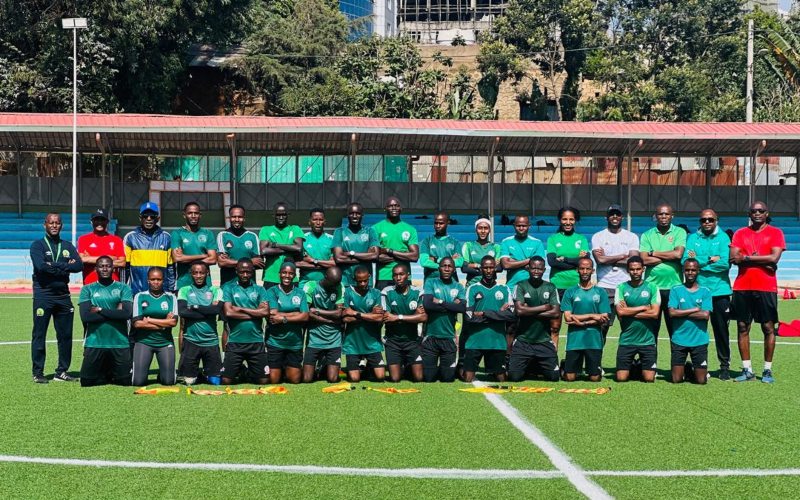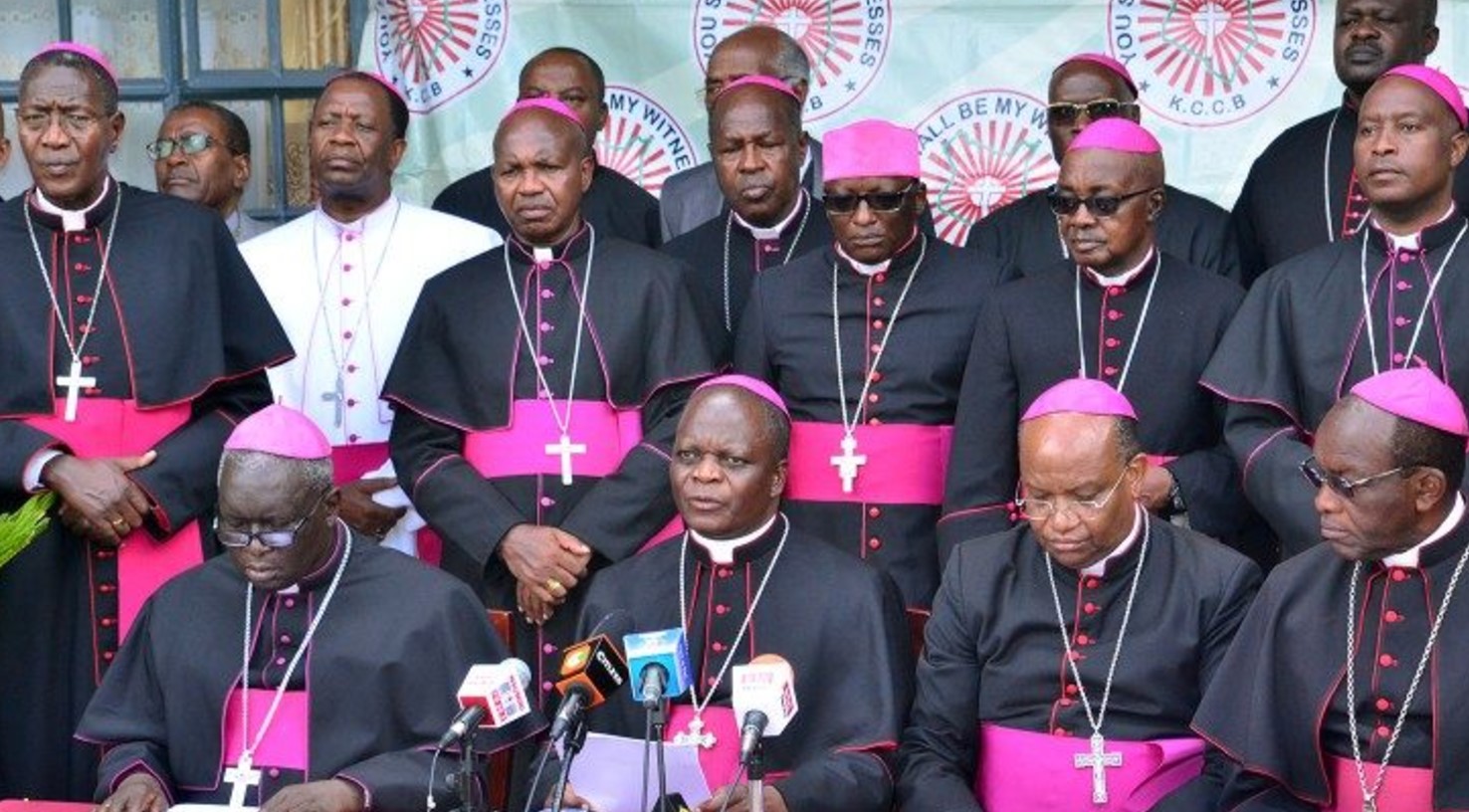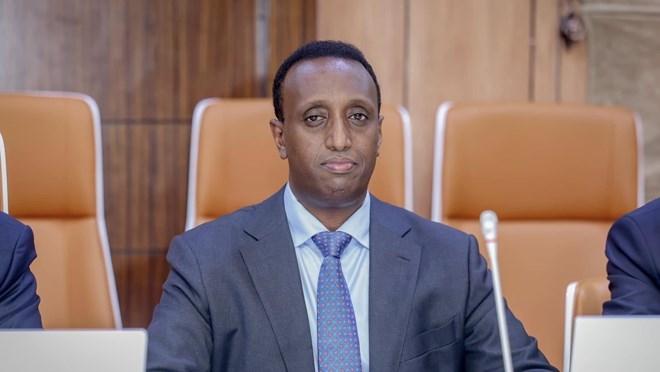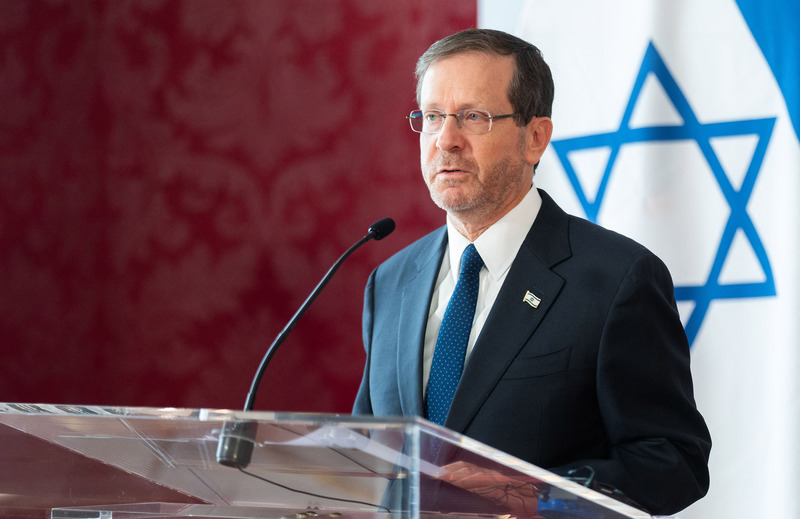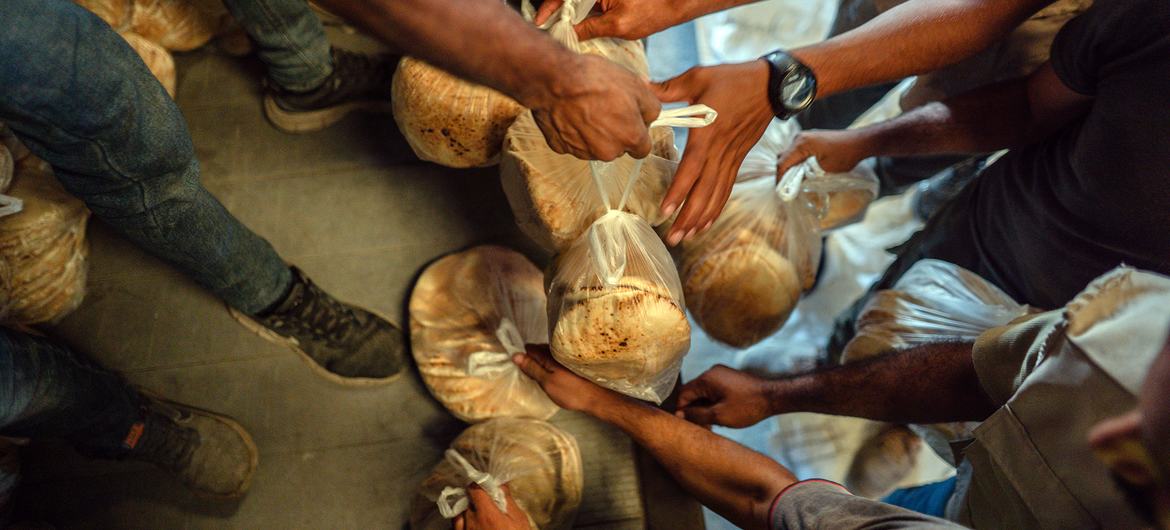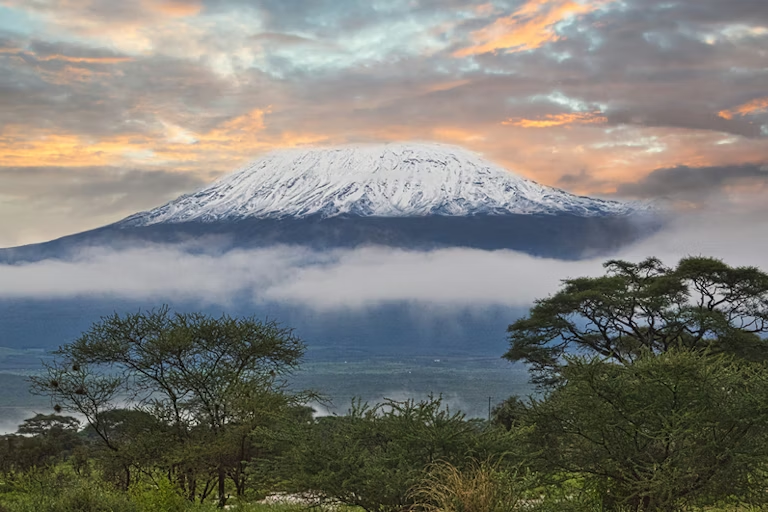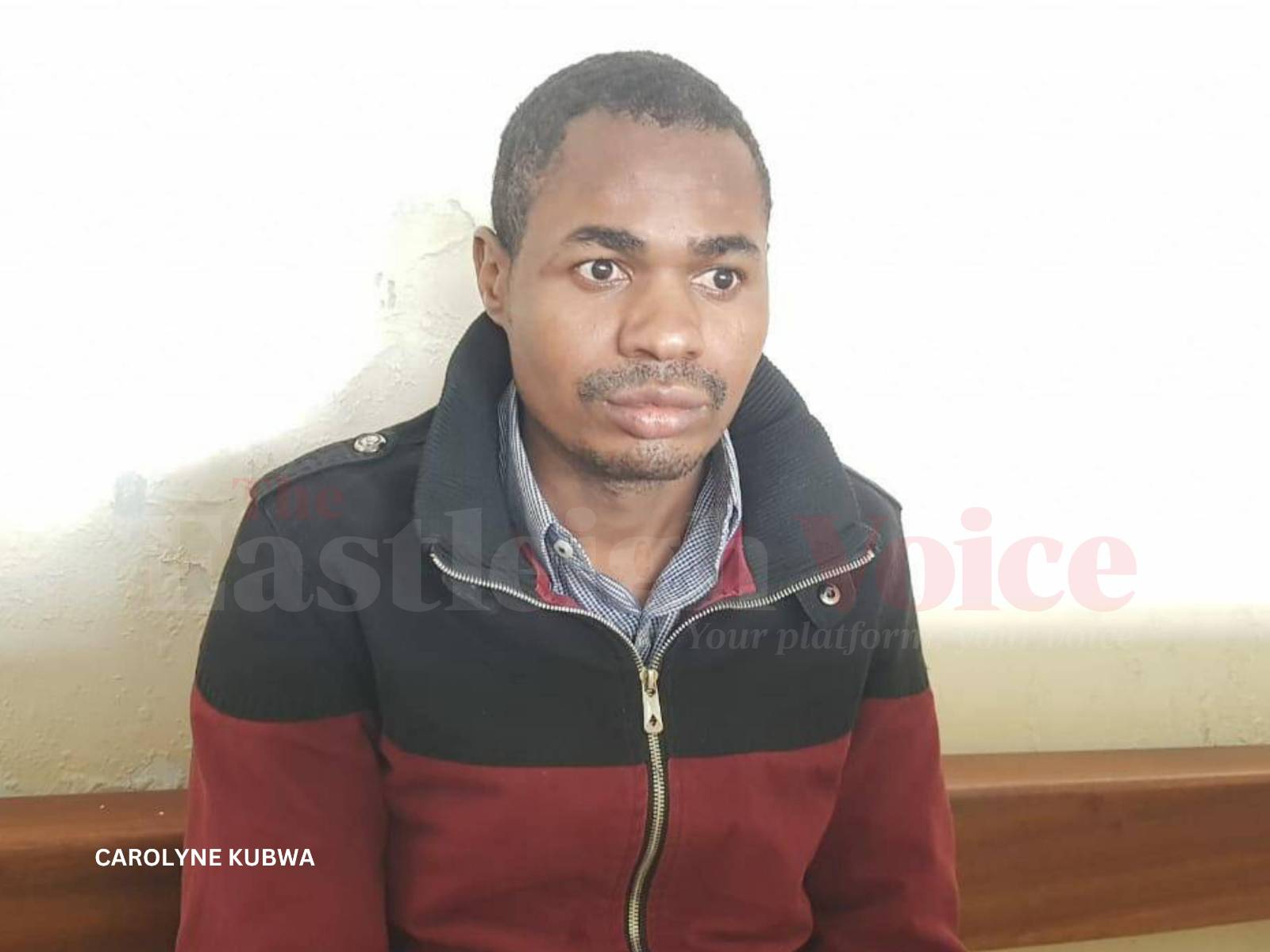Survivor of Lamu's deadly 2014 Al-Shabaab attack vows to preach peace
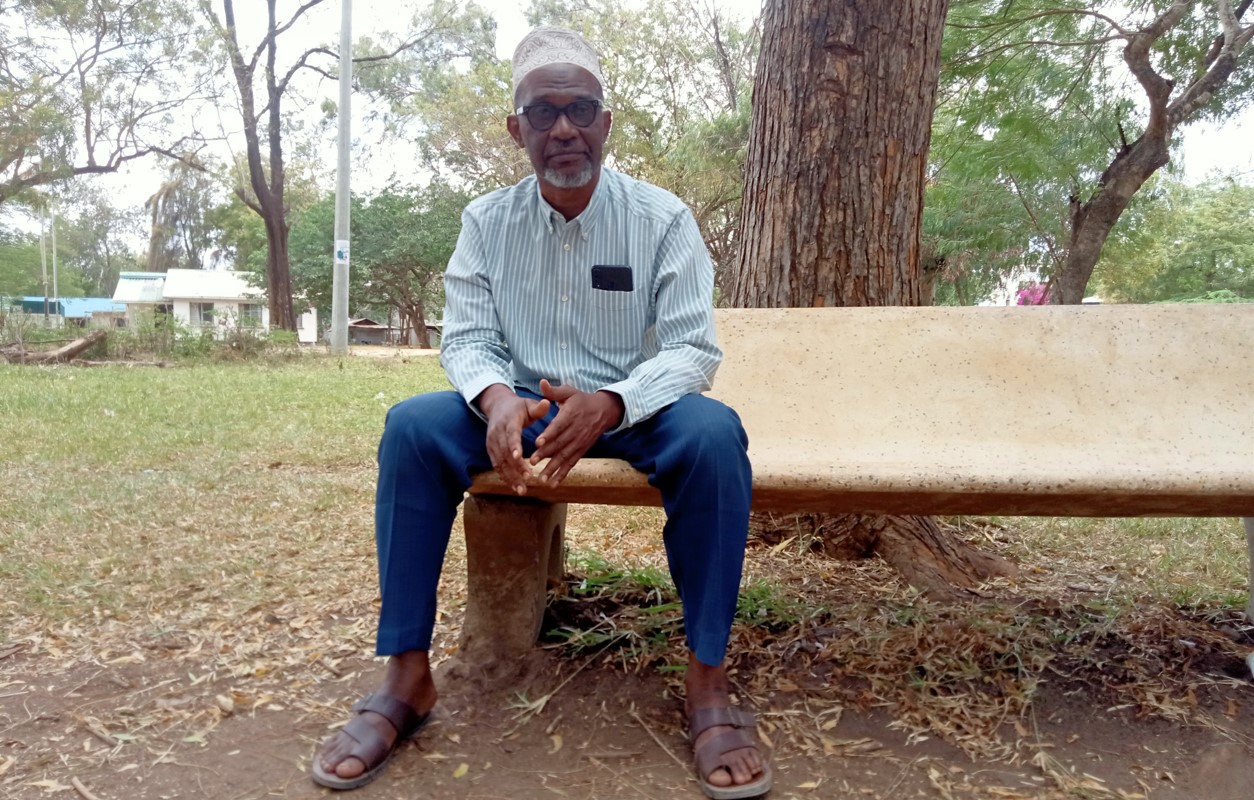
He says he was always disappointed seeing how Christians and Muslims in Mpeketoni and its environs openly disagreed and pointed fingers at each other.
The 2014 terrorist incident in Mpeketoni, Lamu County left deep scars on the lives of many in the area.
The attack, which was carried out on June 15 that year, left more than 90 men dead while dozens of vehicles and houses were burned down overnight.
More To Read
- Salasya hate speech case to proceed after NCIC mediation collapses
- Lamu nurses end 79-day strike after agreement with county government
- 868 Al-Shabaab militants killed since February - Somali Defence Ministry
- NCIC dismisses disbandment reports, affirms full operations
- Interior CS Murkomen announces panel to recruit NCIC chair, warns of rising hate speech
- Senate flags surge in hate speech ahead of 2027 polls
It was an invasion that left many angry, traumatised, saddened, and others still in shock to date.
There are those to whom the memory of the atrocities they witnessed on that particular day that Al-Shabaab raided the business town of Mpeketoni pushed them to change their direction or perspective about life completely.
One such individual is Ibrahim Shahibu Shekue, a teacher by profession.
That particular year, Ibrahim, 61, was teaching at Lake Kenyatta Primary School, located in Mpeketoni town.
He vividly remembers resurfacing from his hiding early the following morning after the overnight attack and killings and rushed to report to school as he was the teacher on duty that week.
Shahibu describes how he walked through the town while witnessing horrific scenes of blood and corpses strewn everywhere.
Extremely terrified
He says he was heartbroken and extremely terrified as he headed to school. He was trembling as he would hear cries from every corner. The town had suddenly been turned into a ghost and haunted place by the Somalia-based insurgents.
“I arrived at school at six in the morning and what I had witnessed on the way terrified me and completely drained my strength. The blood and bodies of people brutally killed by Al-Shabaab were lying in every street and alleyway of Mpeketoni town,” says Ibrahim.
He says when he arrived at school he found a lonely environment as students and teachers did not report that day.
As a result, Ibrahim says he returned to Mpeketoni town to mourn with others who had been affected by the deadly attack.
Apart from teaching, Ibrahim was also the chairman of the Mpeketoni Division Muslim Community Union.
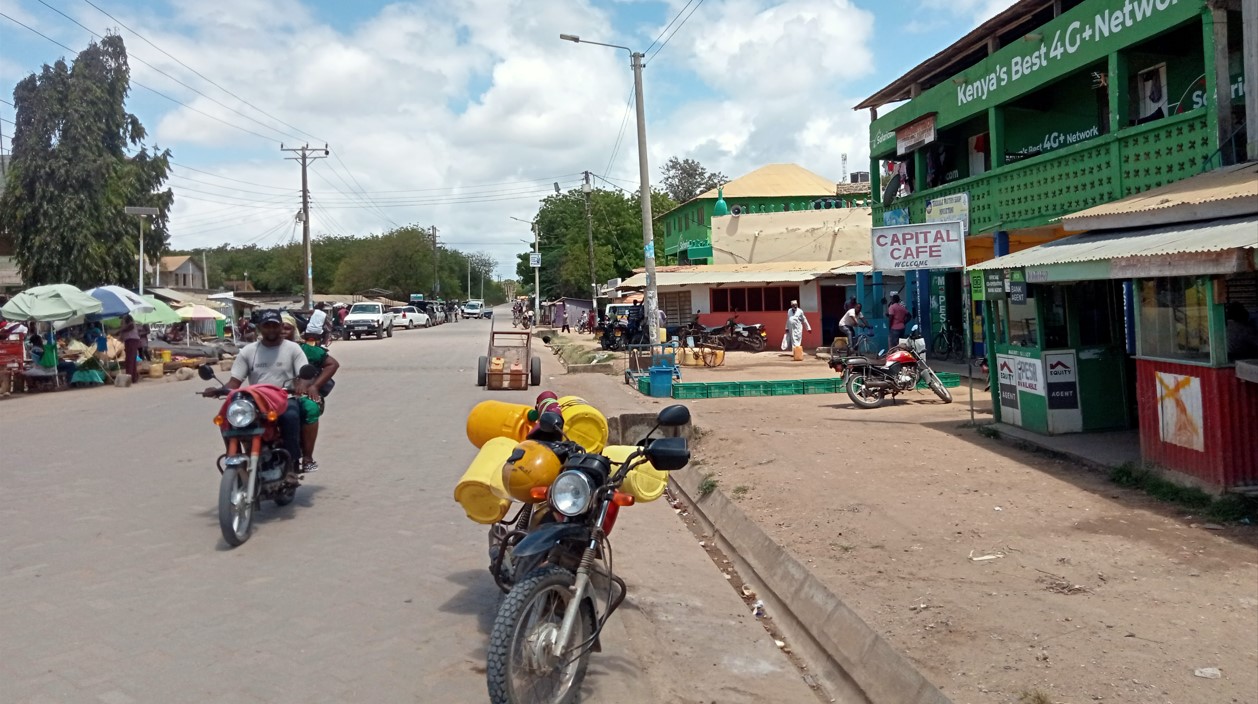 Mpeketoni town in Lamu West. The town was a bloody scene after the June 15, 2014 Al-Shabaab raid that left at least 90 people, mostly men, dead. (Photo: Farhiya Hussein)
Mpeketoni town in Lamu West. The town was a bloody scene after the June 15, 2014 Al-Shabaab raid that left at least 90 people, mostly men, dead. (Photo: Farhiya Hussein)
He explains that Al-Shabaab, apart from carrying out killings and destruction of property, also left another dangerous sickness in Mpeketoni town and Lamu in general. They planted religious divisions and hatred.
He says he was always disappointed seeing how Christians and Muslims in Mpeketoni and its environs openly disagreed and pointed fingers at each other.
“Christians and Muslims who had previously lived as brothers and sisters began to consider each other as enemies as soon as the Mpeketoni attack and massacre was carried out. Al-Shabaab carried out the killings while using religious ideologies as they targeted Christians and killed them in large numbers. They planted a bad seed of hatred between Muslims and Christians,” says Ibrahim.
Resolving conflicts
For this reason, Ibrahim resorted to coming up with a method to resolve the existing conflicts and indifferences as that also affected him psychologically.
“How do you feel when you walk around the street and someone throws verbal insults at you – that you are a terrorist and a murderer? Christians and Muslims were not seeing each other face to face. That’s when I took the initiative to call an urgent meeting of all religious leaders from the diverse religions including Christians and Muslims,” says Ibrahim.
He says it was through such an effort, which was initially met with opposition and hostility from both sides, that he ultimately managed to bring harmony and integration among all the tribes and religions of Lamu.
The meeting gave birth to the formation of Lamu County Interfaith Peace Forum. Ibrahim was unanimously selected as the chairperson of the forum, a position he holds to date.
Through the forum, residents of Mpeketoni and Lamu at large from diverse religions have embraced unity, trust and love for one another.
“The terrorists came up with an ideology to divide us based on religion. They used religion as an excuse to harm others. They brought suspicion into our community by sowing religion-based hatred. It was unfortunate linking their act to Islam,” says Ibrahim.
“But our efforts to unify Christians and Muslims are successful. Today, we’re happy that Christians and Muslims here in Mpeketoni can play, pray, eat, and talk to one another. We shamed Al-Shabaab. Christians are God-fearing, as are Muslims. We won’t allow terrorists to divide us anymore. Al-Shabaab is our common enemy.”
Ibrahim also lauded the efforts of the National Cohesion and Integration Commission (NCIC), the security committee in Lamu, religious leaders, and local organisations such as the Kiunga Youth Bunge Initiative (KYBI) for working hard to ensure Lamu remains peaceful and united.
Peace ambassador
He further states that it was through what he witnessed during the 2014 Al-Shabaab attack in Mpeketoni that his perception of life changed completely.
He decided to be a peace ambassador all his life.
“From that year until now, I decided to be an ambassador of peace by preaching and teaching, whether in school as a teacher, a religious leader in mosques and churches or at community gatherings as an elder. I was living in Mpeketoni when Al-Shabaab carried out the massacre that night, so, I consider myself a real survivor of the Al-Shabaab attack. And that is why I vowed to preach peace until death,” Ibrahim says.
Those who know Ibrahim describe him as friendly, peace-loving, gentle, caring and humorous.
Alex Mugo, a resident of Mpeketoni, says it is indeed through Shahibu’s efforts that the unity of all religions and ethnic groups has been maintained and embraced, not only in Mpeketoni but also in the whole of Lamu.
‘It wasn’t easy to find a Muslim sitting in a place like a church listening to the service from beginning to end and then later interacting with the believers without discrimination. But we thank Shahibu and his team. They’re peace-loving individuals who worked tirelessly to end any discrimination, whether tribal or religious. Shahibu is indeed a perfect example of a devotee who calls himself an ambassador of peace in Lamu, Kenya and the world,” said Mugo.
Lucy Kimani asked all citizens and leaders to emulate Shahibu by embracing preaching about love, unity, harmony and coexistence.
Ibrahim was born in Kizingitini village in Faza Division, Lamu East Sub-County in 1963.
He attended Kizingitini Primary School before joining Mpeketoni High School in Lamu West and then Malindi High School in Kilifi County where he completed his secondary school education.
He later joined Egoji Teachers Training College in Meru County from where he graduated with a P1 teacher’s certificate.
He is a father of three children, two boys and a girl.
Top Stories Today

